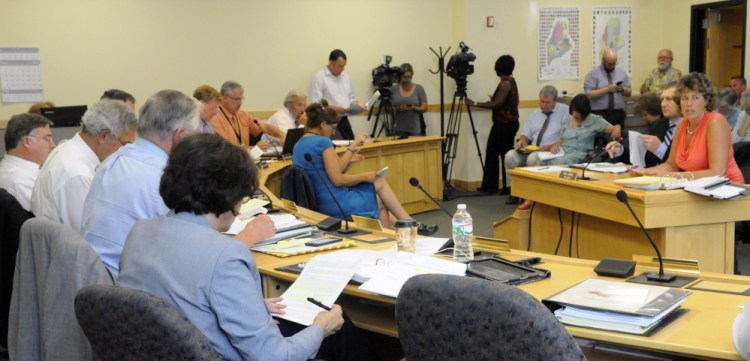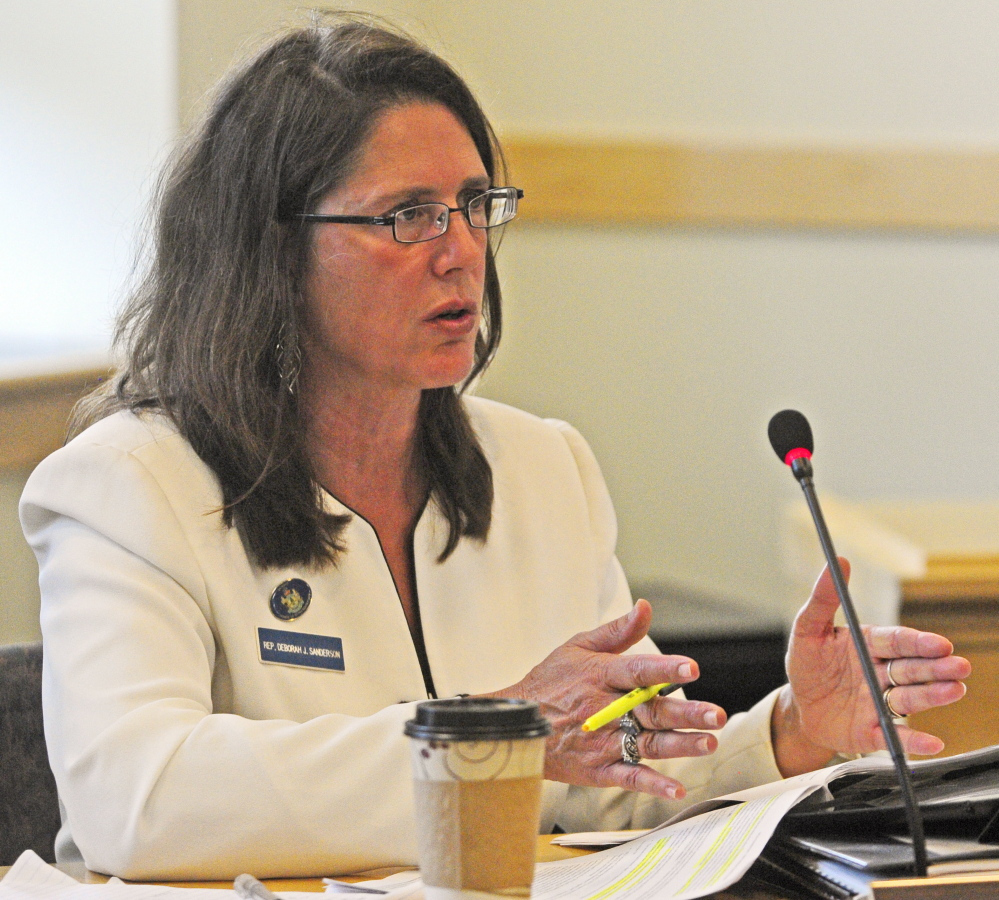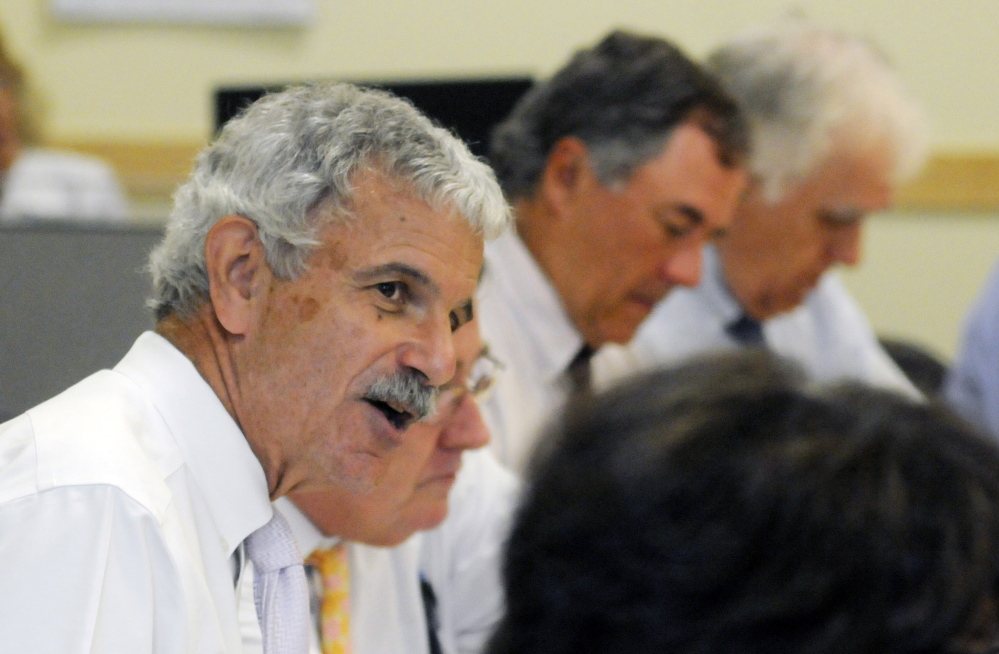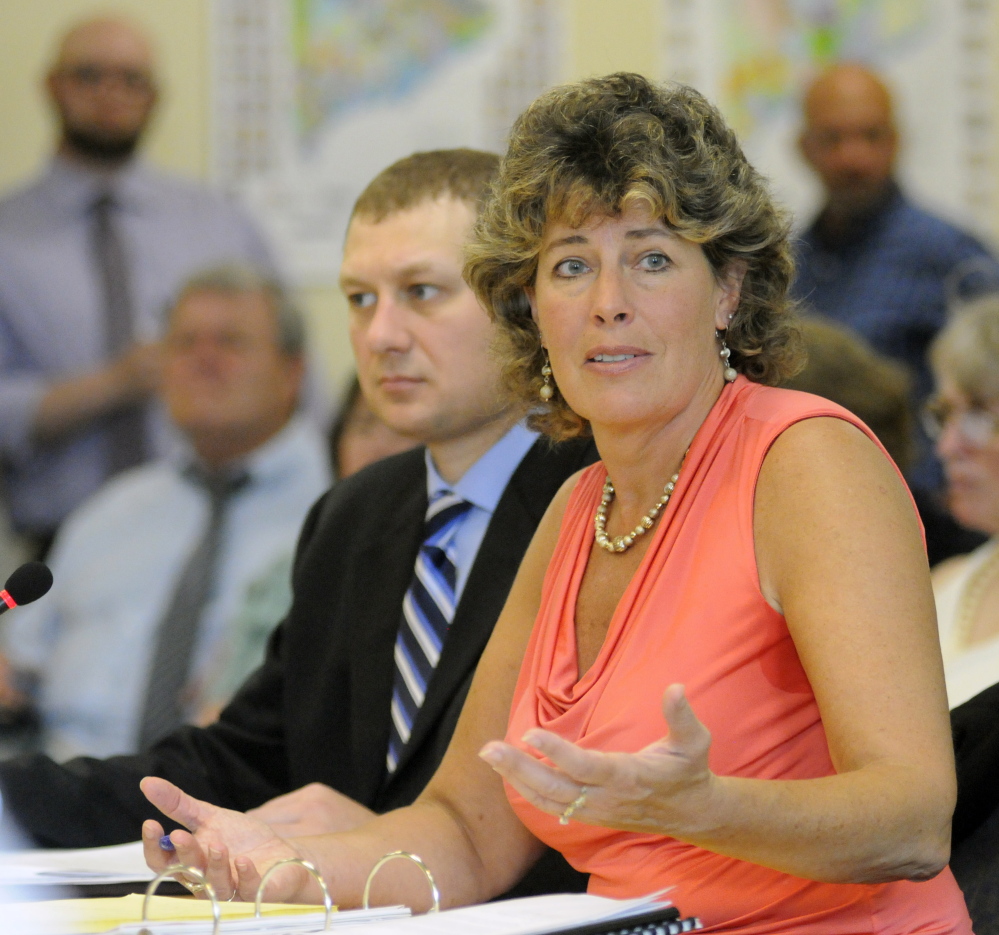AUGUSTA — Legislative investigators found that the LePage administration moved to withhold funding from a Fairfield charter school after the governor expressed opposition to its plans to hire House Speaker Mark Eves as its next president.
In a 25-page report released Tuesday on the LePage-Eves controversy, the Office of Program Evaluation and Government Accountability lays out a timeline that shows when the administration began voicing its displeasure over the school’s plans, but the report makes no determination of wrongdoing. Investigators found that Tom Desjardin, the acting education commissioner, ordered finance staff to withhold the first quarterly payment to Good Will-Hinckley after meetings in which LePage told his senior staff that he no longer could support the school.
The report found no proof that LePage ordered his staff to halt the payment or that he made explicit threats to eliminate the funding entirely.
The Government Oversight Committee ordered the report as part of a fact-finding probe into the administration’s actions before and after the Republican governor learned that Eves, a Democrat, would be offered the job. The oversight committee took no action Tuesday.
Desjardin’s role in the matter drew questions from committee members, who were skeptical that he acted independently to halt the school’s funding within hours of a Cabinet meeting with the governor that Desjardin described as a “venting session.”
The Cabinet meeting took place June 9, the same day the school announced it had hired Eves – despite repeated requests by LePage and high-level administration staff to reconsider the decision. The school rescinded its job offer June 24, fearing the loss of $530,000 in annual state funding.
The report found that Desjardin and Good Will-Hinckley board Chairman Jack Moore met privately May 22, after the school’s board had voted unanimously to hire Eves. LePage’s efforts to convince the school to reverse its decision began after Desjardin and Moore met, the report said, prompting one committee member to ask why Moore told Desjardin about the school’s private hiring decision before it was announced.
“It seems like the board chairman and the acting commissioner overstepped their boundaries in a couple of ways,” said Sen. Bill Diamond, D-Windham. “The board chair clearly revealed things that you would think should be kept confidential. It appears that he was more intent on appeasing the powers he saw to be as opposed to maintaining the hiring process.”
WONDERING ABOUT SCHOOL’S ACTIONS
Desjardin also told OPEGA that Moore asked him if he was interested in the Good Will-Hinckley job himself.
“Let me get this straight,” Diamond said during the report presentation. “The chairman of the board for Good Will-Hinckley votes to unanimously hire (Eves) and turns around a week later to offer the job to the acting commissioner?”
Moore did not return a call seeking comment.
The committee plans to invite individuals referenced in the report to a public hearing, which has not been scheduled yet. It is likely that Desjardin and Moore will be asked to answer questions.
“It’s clear the governor made the (funding) threat, the evidence shows it and he admits it,” Diamond said. “But the other half of this is what role did Good Will-Hinckley play? I think the public needs to know every aspect of this.”
Adrienne Bennett, LePage’s spokeswoman, didn’t respond to a request for comment Tuesday.
Beth Ashcroft, the director of OPEGA, said that although the inquiry could not prove that LePage ordered the funding cuts himself or made explicit threats to eliminate the funding entirely, it was clear that Good Will-Hinckley officials knew the funding was in jeopardy.
The report noted that LePage’s staff refused to participate in the probe, citing pending litigation. Eves has filed a civil lawsuit against the governor. Ashcroft told the Press Herald that OPEGA requested interviews with two of LePage’s senior staff and “offered the governor an opportunity to speak with us to share his perspectives on the Good Will-Hinckley matters and to confirm a few things for us.” The governor’s office declined the request in writing, she said.
Good Will-Hinckley operates a charter school, the Maine Academy of Natural Sciences, and Eves has consistently voted against charter schools as a legislator. LePage acted to prevent his hiring because of that record of opposition, as well as concerns about Eves’ qualifications.
COMMUNICATIONS ON FUNDS CUT UNCLEAR
Moore believes he received the handwritten note from the governor sometime before receiving the LePage’s formal letter protesting on June 8. He described the note as “reasonably upbeat,” but it included a passage that said, “I would have trouble supporting Good Will-Hinckley if you hire such a hack.” Moore did not recall a specific threat to cut the school’s funding. He also told OPEGA that the note has been discarded.
The OPEGA report found that “it’s still unclear whether the governor personally communicated to anyone at (Good Will-Hinckley) or Harold Alfond Foundation specifically that the funding would be cut when he communicated to them that the school had lost his support.” However, it found that Desjardin’s move to withhold the first-quarter funding was the direct result of the governor learning that the school had hired Eves. Additionally, Desjardin told OPEGA that LePage told him he did not want to send any money to the school that wasn’t required by law.
The state funding was reinstated after Eves was fired, Ashcroft told lawmakers.
The Alfond foundation is a private philanthropic organization that helps fund the charter school at Good Will-Hinckley, and school officials were concerned that losing state funding would also trigger a loss of support from the foundation.
Good Will-Hinckley is a nonprofit organization located on a 1,000-acre campus in Fairfield. It operates a number of programs, including The Glenn Stratton Learning Center Day School, a treatment center that provides services for students with social or behavioral challenges, and the charter school, which is made up of day students from the region and boarding students from all over Maine.
The charter school receives state funding from the Center of Excellence for At-risk Students – a program for elementary or secondary students at risk of failing or dropping out of public school. The funding was initially approved by the Legislature in 2009 as a temporary means to support Good Will-Hinckley’s effort to revive its residential program for the charter school.
The oversight committee voted unanimously July 1 to initiate the probe. Four lawmakers, including Sen. Tom Saviello, R-Wilton, requested the inquiry, expressing concerns that LePage had exceeded his authority by threatening to pull the school’s funding.
Some lawmakers raised the prospect of impeachment after Good Will-Hinckley rescinded its offer to pay Eves $120,000 annually to head the school. Eves has said that the school’s board told him before it withdrew its offer that the governor had threatened to pull its state funding unless it fired him. The controversy added to a testy legislative session marked by repeated confrontations with LePage over issues such as the state budget, income tax cuts and aid to asylum seekers.
LAWYER: REPORT DISPROVES LEPAGE CLAIMS
Any impeachment proceeding against LePage would face long odds because the Legislature is divided between the Democrat-controlled House of Representatives and the Republican-controlled Senate. While LePage alienated Senate Republicans, including President Micheal Thibodeau, by attacking them for not supporting his proposed budget, it’s unclear how many Republicans would vote to remove him from office.
Findings in the report also could be used in Eves’ court complaint against the governor, even though that action is separate from the OPEGA inquiry. David Webbert, a labor attorney who filed the suit for Eves on July 30, said the report detailed the hiring process and demonstrated that Eves was the best candidate for the job.
“In short, the OPEGA report confirms that the governor engaged in blackmail to get Speaker Eves fired without cause,” Webbert said in a written statement. “The report demolishes the governor’s claims that (Good Will-Hinckley’s) selection process was politically corrupt, that the speaker was chosen solely because of his party affiliation, and that he is an unqualified ‘hack.’ ”
Rep. Chuck Kruger, D-Thomaston, said the report clearly outlines a sequence of events that led to the firing of Eves.
“A good number of questions remain unanswered, and we plan to get to the bottom of them,” he said.
Send questions/comments to the editors.








Comments are no longer available on this story